DIGICOMP – Digital Competence Framework for Citizens
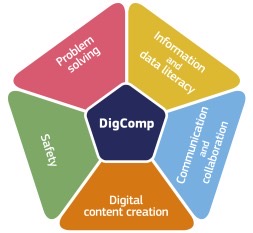
2024 – 2026 The DigComp project, an Erasmus+ funded initiative, is strategically designed to elevate the digital literacy of adult educators across Europe. It addresses the critical need for enhanced digital competencies in modern education by providing educators with essential tools for self-assessment and targeted training. The project’s comprehensive approach includes the development of an E-Skills Self-Assessment Tool, virtual training platforms, and peer support networks, all aimed at fostering a collaborative learning environment where educators can share best practices and resources. A key component of the DigComp project is the emphasis on recognizing and validating educators’ achievements in digital literacy. Furthermore, the project promotes inclusivity and equal access to digital education, with a focus on bridging gaps in digital access for educators, particularly those from marginalized groups such as low-qualified minority youth. In addition to enhancing technical skills, the DigComp project also prioritizes the development of soft skills among educators. It aims to support educators in managing motivation, stress, and social isolation, which are increasingly important in the context of remote work and digital interaction. Project number: 2024-1-ES01-KA220-ADU-000250995
SAPP- Science App
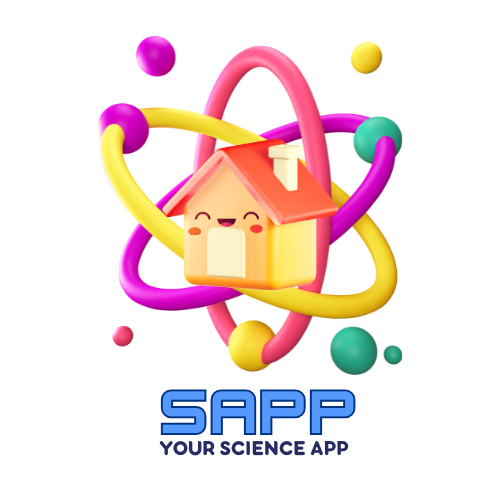
2025 – 2026 The Science App project aims to boost parents’ confidence in teaching science, enhance their knowledge through educational tools, and promote healthy science-related parenting habits. This will be achieved through a comprehensive strategy that includes developing digital learning resources, designing user-friendly tools, and fostering an online support community for parents. The project focuses on stay-at-home parents, unemployed adults, individuals with limited science backgrounds, diverse demographics, and those seeking peer support, ensuring inclusivity and accessibility. Implementation will involve various activities, content creation for Science App, and the development of both a website and a mobile app. Collaboration among project partners will be key, leveraging diverse expertise and resources to produce high-quality digital tools and educational materials. The expected outcomes include increased parental confidence, expanded scientific knowledge, and a strong, supportive community for sharing resources and experiences. Project number: 2024-2-RO01-KA210-ADU-000274030 Facebook
Digital and Green Marketing in the Digital Age

2024-2025 The DigMar Project aims to enhance the digital marketing skills of professionals in the tourism and hospitality sectors. Its primary objectives include: Developing a comprehensive training program that equips participants with the latest digital marketing strategies and tools. Facilitating knowledge exchange among industry experts, educators, and practitioners to foster innovation and best practices. Promoting the adoption of digital technologies to improve competitiveness and customer engagement within the tourism and hospitality industries. By focusing on these goals, the project seeks to empower professionals to effectively navigate the evolving digital landscape. Project Number: 2024-1-DE02-KA210ADU-000253719 Website | Facebook
Green Pathway to Tomorrow
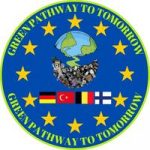
The main concept of the project titled “Green Pathway to Tomorrow” is to promote sustainability and green practices among pupils in secondary schools. So, the project aims to address environmental and climate change issues by supporting innovators at school, developing key competences and green skills, promoting green transport, and fostering an understanding of the importance of sustainability. The objectives, outcomes/results and their linkage with the priorities can be listed as follows: Objectives: to increase awareness of environmental and climate change issues among pupils to develop pupils’ key competences and green skills such as problem-solving, leadership, critical thinking and teamwork to enable pupils to become active agents of change for sustainability to promote sustainable practices in schools such as reducing waste and carbon footprint, conserving energy, using green transport and mobility options to encourage and support innovators in schools on practical solutions and initiatives that contribute to sustainability to develop green skills among pupils, teachers and other project participants to do workshops that are in line with the EU’s green policies (European Green Deal) Outcomes/ Results: Increased knowledge and, understanding of environmental and climate change issues Improved key competences and green skills of the participants Increased involvement and leadership of pupils in sustainable projects and initiatives Improved environmental performance of school facilities Improved ability to apply green skills to real-world problems and challenges Improvements in using less energy and greener transportation options Enhanced alignment and contribution to the EU’s green policy objectives by project participants The objectives with the project’s priorities: Environmental and Fight Against Climate Change: The objectives and outcomes of the project are directly linked to this priority as the project seeks to increase awareness and understanding of environmental and climate change issues and promote sustainable practices to reduce their impact. It promotes the use of green transport and mobility options in schools and communities as a practical solution to reduce the environmental impact of transportation. Supporting Innovators at School: The project aims to support green innovators at school to develop practical solutions and initiatives for sustainability. So, it aims to develop the green skills of the participants to enable them to become active agents of change for sustainability. Development of Key Competences: The project aims to develop the pupils’ key competences such as problem-solving, critical thinking, leadership and teamwork. It aims to promote sustainability by raising awareness of environmental and climate change issues among pupils. The project is financed by Erasmus+ KA2: 2023-2-DE03-KA210-SCH-000170139 Website
TIME2ACT@SD

TIME2ACT@SD – Time to Act through Sustainable Experiences for HigherEducation Students Project Duration: 2022-2025 TIME2ACT@SD aims to contribute to the development of knowledge, skills, and attitudes, as well as changing of behaviours among European higher education (HE) students, in the field of sustainable development (SD) and SD Goals(SDG), through the development of interactive content, digital tools, and innovative teaching methodologies, based on the use of the gamification, for HE teachers’ use in formal and non-formal education. A set of open educational resources will be produced and a set of initiatives to address the lack of knowledge and skills and change attitudes and actions towards SD among young people attending HE will be promoted. Through innovative practices of training and education (MOOC and gamification strategies) and through active methodologies (workshops and bootcamps, as activities of experimental nature), the project aims to promote literacy in the target group in the field of SD/SDG, as well as behavioural changes regarding individual preferences, awareness of SD, consumption habits and lifestyles. The TIME2ACT@SD results will be: 3 transnational studies with HE students and teachers about SD topics (scientific papers); 3 MOOC and 3 webinars aiming to promote the HE students’ literacy on environmental, social and economic sustainability; web/mobile based and immersive games on SD; 1 virtual workshop on educational games; 2 sustainability bootcamps; 1 online platform; focus groups with HEI stakeholders; 1 international conference. Download Abstract Changing Attitudes Through Play: A Web and Mobile Game for Sustainability Education in Higher Education – Game Link The applicant country is Portugal. Partners are Cyprus, Belgium, Finland, Italy, Portugal & Turkey. Website | Facebook | Instagram | LinkedIn | Blogpost The project is financed by Erasmus+ KA2: 2022-1-PT01-KA220-HED-000087984
Recycling
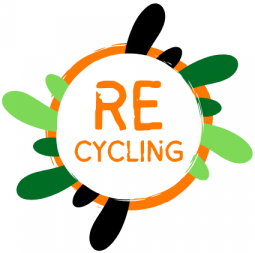
Project Duration: 2022-2024 The project ‘Recycling’ aims to increase sensitivity to climate change and environmental pollution, which are the primary problems of not only the environment we live in but also the whole world. TARGETS: Strategies to minimize waste: To raise awareness among consumers about choosing healthy and sustainable diets and reducing food waste, as stated in the farm-to-table strategy of the 1st European Green Agreement.According to the 2018 report of the 2. Turkish Chamber of Environmental Engineers, 30% of the waste collected in municipalities is plastic. Of the 8 million 612,000 tons of plastic released annually, only 384000 tons can be recycled.With this project, we aim to reduce the use of plastic to a minimum, to use glass, to use plastic products that can be recycled, and to gain awareness of the separate collection of packaging plastics. Evaluation of Existing Waste 1. Paper: As stated in the European Union Paper Recycling Declaration, with recycling, reducing air and water pollution by reducing tree cutting, and thus creating job opportunities for the recycling sector, employment will increase, the need for raw materials will be met and the European economy will be contributed 2.Textile: to make use of textile wastes and used clothes in our recycling courses and turn them into products suitable for daily life. The applicant country is Turkey. Partners are Finland, Spain and Greece. Facebook | Instagram The project is financed by Erasmus+ KA2: 2022-1-TR01-KA210-ADU-000084308
Designing the Future
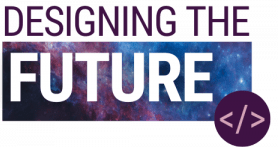
Project Duration: 2022-2024 In this unpredictable world, the pandemic became a great chance to remember and get aware of the skills that students need: decision-making, digital literacy/readiness, creative problem solving, critical thinking and perhaps, above all, ability to adapt. Adaptability must be built into our educational systems in order to ensure that those skills remain a priority for all students. Particularly, in the 21st century we aim to grow a generation that produces technology rather than consuming it by spreading the different dimensions of technology and raising awareness to digital literacy/readiness with our project. At the same time, we aim to enhance the way children can gain a scientific perspective on problem solving and raise creative and self-esteemed pupils with analytical thinking skills. The lack of qualified tutors in schools is the biggest obstacle in digital literacy/readiness, coding and 3D printing. With our project we desire to raise awareness regarding the importance of digital literacy/readiness, coding and 3D printer usage in education for teachers, students aged 12-16, parents, curriculum providers, decision makers, Ministry of Education, universities and NGOs. We all need to: enhance our 21 st century skills; gain lifelong skills; enrich curricula; reshape strategies and techniques in teaching-learning process; raise qualified generations for future employment; add EU value and quality to our organisations; increase academic success; develop creativity, communication and team-work skills; exchange good samples in digital literacy/readiness, coding and 3D implementation at international level. Objectives: We want to expand awareness of all kinds of personal, professional, general skills in all partner organisations and technology professionals working in the field of information to improve their level of knowledge, by Providing professional training with the support of our university and training centre experts to acquire high quality technology skills and competencies. Enriching the participants’ teaching practices and expanding the diffusion network Increasing the level of knowledge and skills on digital literacy/readiness with coding and 3D printer implementations on children age of 12-16. Involving national and international projects with coding and 3D printer productions. Producing creative and innovative ideas/implementations with coding and 3D printers. Providing visibility of our organisations on a local, regional and international scale. Creating various educational materials and our production result of the project. The applicant country is Poland. Partners are Portugal University, Finland, Turkey and Italy training centres, Turkey Yeşilsu VET school and Estonia. Facebook | Read Blogpost 1 | Read Blogpost 2 The project is financed by Erasmus+ KA2: 2021-2-PL01-KA220-SCH-000049796
RE-THINK / RE-ACT
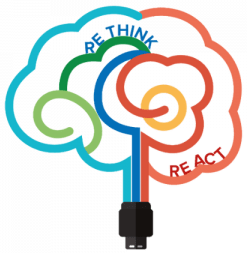
Project Duration: 2022-2024 This project, called RE-THINK / RE-ACT, focuses on the INCLUSION of Secondary Education students with adaptation difficulties and / or behavior in classrooms due to poor training of SOFT SKILLS, which, currently, supposes a real challenge for education systems, since they tend to focus their training on HARD SKILLS as a priority. These students often do not receive the appropriate educational response they need, either because they do not have the necessary resources for it or because of ignorance of their personal situation, which can lead to their being excluded from their classroom-group and from their schools, and may even lead to early school leaving.This situation can cause a break in the educational, emotional and social development of the students. That is why, thanks to the GLOBAL MODEL proposed in our RT / RA project, we will seek to respond to the horizontal priority of INCLUSION AND DIVERSITY IN ALL AREAS OF EDUCATION, TRAINING, YOUTH AND SPORT, as well as the priority sectorial of ADDRESSING DISADVANTAGES IN TERMS OF LEARNING, EARLY SCHOOL DROPOUT AND INSUFFICIENT MASTER OF BASIC SKILLS.In this way, the needs of the students will be attended to to promote their personal development and, with it, a true inclusion, being able to accompany them in the search for their own TALENT and training them to adapt satisfactorily to their schoolcenter, their community and the demands of society, including the acquisition of skills that allow them to know and integrate the so-called SOFT SKILLS. Objectives: Favor systems for detecting weaknesses in educational centers in their attention to students in need of upskilling.-Develop effective materials that facilitate positive attitudes and behaviors that promote student inclusion. Train teachers and educational agents involved in effective care, support and mentoring for these students. Create valid teaching coordination tools to evaluate and improve the individualized treatment of students with these needs. Provide an inclusive vision to European education systems through good practices carried out at national and international level for the development of talents in their students. Outputs: “RE-THINKING FOR SCHOOLS” (RFS), a tool that will allow educational teams and managers to assess whether theircenters are truly prepared for the inclusion of students and their support in the development of the necessary SOFTSKILLS, as well as to obtain answers, guidelines and routes for improvement in their daily educational work. “RE-ACT WEBSPACE” (RAW), an educational platform or space for promotion, motivation and RESKILLING for teachers and families, where they can find methodologies and resources to carry out with these students in the different areas in which they are as well as pills or educational tips that will undoubtedly help you in your role as educators. ROLE MODELS and success stories will be included, that is, testimonies from boys, girls, professionals or families who have faced this problem on some occasion and have successfully overcome it. “TOGETHER” (2Gapp), application for adequate teacher coordination that facilitates the transition between educational stages and work with the MENTOR or specialist of the RT / RA classroom, as well as with the different teachers of the ordinary classroom and the families or external specialists who They collaborate in the development of the students. This Will have an impact on an improvement in communication and a greater monitoring of the acquisition of competencies and skills of the students in the different contexts in which they find themselves every day. “YOUDO”, interactive digital tool to encourage student motivation and make their participation in the activities that the RT /RA project proposes to facilitate their development more attractive. It will be oriented to the realization of games, challenges,interactive and self-diagnosis cards, etc., that can be used both in the RT / RA classroom with the MENTOR or specialist as well as outside of it, favoring autonomy and responsibility in the realization of tasks for their own personal development and the improvement of their behavior and adaptation. Website | Facebook | Instagram | Twitter | Project Results | Newsletter 1 | Newsletter 2 | Newsletter 3 | Newsletter 4 | Newsletter 5 | Press Release 1 | Press Release 2 | Blogpost 1 | Blogpost 2 | Blogpost 3 The project is financed by Erasmus+ KA2: 2021-1-ES01-KA220-SCH-000032542
DIMPE
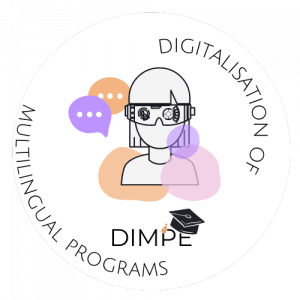
DIMPE – Digitalisation of multilingual programs in the EHEA Project Duration: 2022-2025 The development of linguistic competence is one of the eight key competencies promoted by the EC. Despite MemberStates commitment to the promotion of foreign languages through enacting initiatives for the promotion of bilingualism, i.e., through YUFE and through the improvement of the effectiveness of language teaching in educational settings(Council on Multilingual and Language Skills Development, 2017), more actions in this area are imperative to promote further multilingualism and expand cultural understanding, acceptance and values. For instance, Europe has not yet implemented a language flagship program similar to the USA. However, multilingualism is entrenched in Europe’s Foundation and cultural diversity. Consequently, it should be promoted at all levels. Evidence-based policymaking could contribute to this end so that more extensive and effective initiatives and actions are undertaken to prepare students for international mobility and guide them in becoming more competitive in a constantly demanding and evolving international labor market. A multilingual European society will facilitate cohesion, inclusion, intercultural understanding, and acceptance. Higher Education Institutions (HEIs) can set the cornerstone to achieving this goal by adopting practices and undertaking novel endeavors to promote multilingualism. Currently, there is not a consensus for quality practice, andmany European HEIs, such as the ones involved in this project, need support for developing more potent pedagogical practices to promote multilingualism. Further, in most academic institutions approaches in foreign language teaching are driven by approaches used in first language teaching, without any significant adaptation of the teaching material, speech,or content in order to immerse students in constructive learning experiences. Moreover, many incoming exchange students complete their mobility exchange programs without becoming immersed in the target culture or using the target language, except English. In many cases, linguistic and cultural experience is undermined. Such experiences do not help to accomplish the language objectives of the EU: to speak the native tongue in addition to two foreign languages.Consequently, program coordinators, directors, teachers, administrative staff, and students are in dire need of support and guidance to adopt practices that promote multilingual education. COVID-19 pandemic means more obstacles, which can be sorted out by digitalizing those multilingual programs. Objectives: support of multilingual program coordinators and directors in designing, developing, implementing, managing, and evaluating multilingual programs guide and support of lecturers and students participating in multilingual programs in order to increase their intercultural and linguistic competences promotion of the learning of the home language and culture to incoming exchange students participating in multilingual programs by providing decision-makers with internationalization strategies and actions dissemination of previous results in order to reach multiple target groups within the educational community and through diverse strategies and channels Facebook | Website | Online Tool | Research Paper The project is financed by Erasmus+ KA2: 2021-1-ES01-KA220-HED-000022963
Skills4Mums
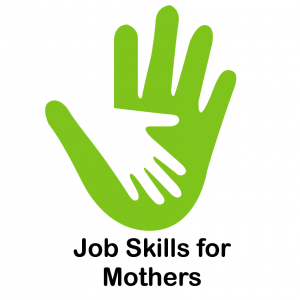
Skills4Mums – Job skills for unemployed mothers Project duration: 2022-2023 Project’s aim is to increase social and economic mobility among stay-at-home mothers with no job and low income by providing the tools they need to thrive in their life, thereby strengthening generations of families and children to flourish and succeed both in work and life. Skills4Mums offers skills training for unemployed mothers in Greece and unemployed immigrant mothers in Finland and Sweden, supporting them to find employment and return to the workforce. The partnership between Learnmera, Rise Club and Be-Creative will have a trans-national European dimension, and a focus on exchange of good practices and experiences. Unemployed mothers in Greece are a particularly vulnerable group struggling in a socio-economic context additionally impacted by the consequences of the Covid-19 pandemic. This project aims to support the inclusion of unemployed mothers with few opportunities with an emphasis on their integration to the labor market identified in Greece, Finland and Sweden through local networks and the municipalities. Pooling of resources at European level through a partnership between organizations supports the exchange of know-how and sharing of challenges such as unemployment, gender equality as well as economic vulnerability and integration/employability of migrants at European level. Objectives: To develop teaching and learning approaches that are relevant to the needs of the labour market in the aftermath of the pandemic, focusing on the specific needs of unemployed mothers. To create the Rise Club Academy offering skills training to unemployed mothers in Greece as well as unemployed mothers from immigrant communities in Finland and Sweden, supporting them to find employment and return to the workforce. To develop specialized learning content for a series of courses/seminars on: digital skills, language skills job search training and career guidance. To create work-based learning opportunities for unemployed mothers in Greece, Finland and Sweden through placements, training in companies. Facebook | Instagram | LinkedIn The project is financed by Erasmus+ KA2: 2021-2-E101-KA210-ADU-000049774
